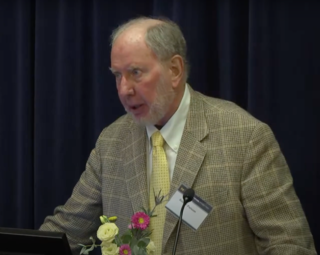A Quote by Ben Horowitz
If the employees fundamentally trust the C.E.O., then communications will be vastly more efficient than if they don't. Telling things as they are is a critical part of building this trust.
Related Quotes
When the trust is high, you get the trust dividend. Investors invest in brands people trust. Consumers buy more from companies they trust, they spend more with companies they trust, they recommend companies they trust, and they give companies they trust the benefit of the doubt when things go wrong.
Surrender your will to Him. Unconditionally. Withhold nothing. Turn it all over to Him; all of your desires, wishes, dreams and hopes. Trust in Him. Trust Him who knows all things. Trust Him who has all power. Trust Him whose love for you is perfect. Trust Him, who alone suffered, paid, and atoned for you sins, and for your weaknesses as well. Trust Him that He will make of you immeasurably more than what you will ever, ever, in all eternity make of yourself. He will create of you a masterpiece. You will create of you only a smudge. You will create an ordinary man. He will create a God.
Trust is perhaps the most critical single building block underlying effectiveness. Without trust leaders do not have followers. Without trust, leaders are impotent despite great rhetoric or splendid ideas. Trust rests on the belief among followers that the leader is transparent: What you see is what there is. Trust means followers believe there is no duplicity; no manipulation just to satisfy the leader's ego. Very simply: The effective leader is transparent; that's why that person is trusted.
Trust is the foundation of real teamwork. And so the first dysfunction is a failure on the part of team members to understand and open up to one another. And if that sounds touchy-feely, let me explain, because there is nothing soft about it. It is an absolutely critical part of building a team. In fact, it’s probably the most critical.
A society that relies on generalized reciprocity is more efficient than a distrustful society, for the same reason that money is more efficient than barter. Trust lubricates social life. Networks of civic engagement also facilitate coordination and communication and amplify information about the trustworthiness of other individuals.
Being vulnerable is allowing yourself to trust. That's hard for a lot of people to do. They feel a lot more secure if they kind of put walls around themselves. Then they don't have to trust anybody but themselves. But to allow you to trust not only yourself but trust others means - is what's required to be vulnerable, and to have that kind of trust takes courage.

































